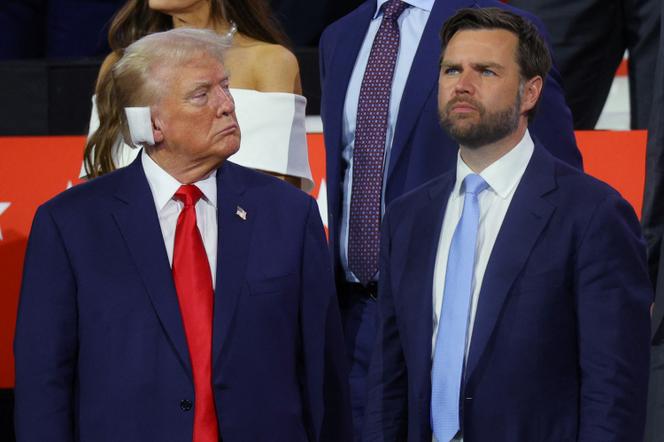


J.D. Vance shook hands, in high spirits, probably moved. He gave a few hugs, posed for a selfie and savored this moment in history. He was at ease on the floor of the Republican convention in Milwaukee, Wisconsin, among the hundreds of delegates. In the middle of the afternoon on Monday, July 15, the 39-year-old senator from Ohio officially took his place alongside Donald Trump on the party ticket, to the acclamation of the delegates. In the event of an election victory in November, he would be one of the youngest vice presidents in US history, alongside a man he had called, in 2016, America's "cultural heroine." Now he's hooked.
After the assassination attempt against him on July 13, Trump let it be said that the shock prompted him to rethink his strategy. Suddenly, the unity of the country was his primary concern. But the illusion didn't last long. The choice of Vance – "a Trump clone" on substantive issues, said Joe Biden on Monday – is not a rupture, nor the dawn of a new era. It's a return to the roots of Trumpism: the defense of the uneducated white male, tormented by deindustrialization, bewildered by what he perceives as an overly permissive society. It's the choice of a young man and a potential heir.
Behind his slightly child-like face, concealed by a neatly trimmed beard, lies an acerbic contempt of the elites, whose disconnection and contempt for the working class he has theorized. Author of a landmark 2016 book, Hillbilly Elegy: A Memoir of a Family and Culture in Crisis, Vance wrote about his background, his difficult childhood in the industrial city of Middletown, Ohio, within a family torn apart by violence and alcohol. More broadly, he painted a bleak picture of the industrial crisis, of class contempt for workers, of their abandonment by the two major political parties, converted to the cult of free trade.
The book became popular in bookstores after the author gave a lengthy interview to the conservative outlet The American Conservative, which was read by all of Washington. "After so many years of Republican politicians refusing to even talk about factory closures, Trump’s message is an oasis in the desert," he explained in the 2016 interview. "But of course he spent way too much time appealing to people’s fears, and he offered zero substance for how to improve their lives." At the time, Vance took a distant view of the Trump phenomenon. In a private message to a friend – later published by the latter – he said he was torn between two hypotheses regarding the future president: "A cynical asshole like Nixon" or "America's Hitler." On Monday evening, interviewed on Fox News, Vance identified the culprit: "I bought into the media's lies and distortions."
You have 65.02% of this article left to read. The rest is for subscribers only.
